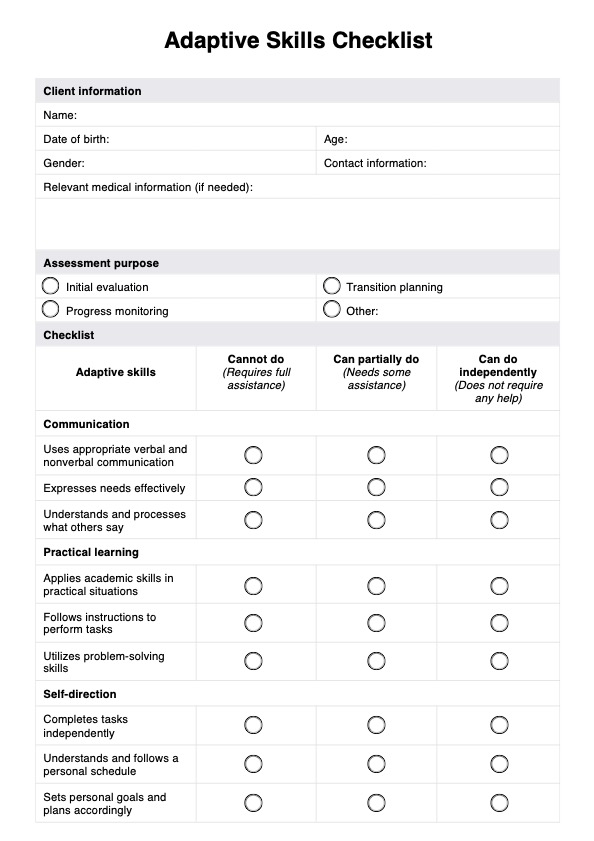Adaptive skills begin to develop in early childhood and continue to evolve throughout a person's life. Early identification and support can help individuals develop these skills effectively over time.

Adaptive Skills Checklist
Get access to an Adaptive Skills Checklist to help assess functionality and independence among clients. Download your free PDF tool here.
Use Template
Adaptive Skills Checklist Template
Commonly asked questions
Yes. With targeted interventions, practice, and support, individuals can significantly improve their adaptive skills. Improvement can occur at any age, although early intervention is often the most effective.
Programs include behavioral therapy, occupational therapy, physical therapy, social skills groups, life skills programs, and technology-assisted learning, each designed to address different aspects of adaptive behavior.
EHR and practice management software
Get started for free
*No credit card required
Free
$0/usd
Unlimited clients
Telehealth
1GB of storage
Client portal text
Automated billing and online payments











